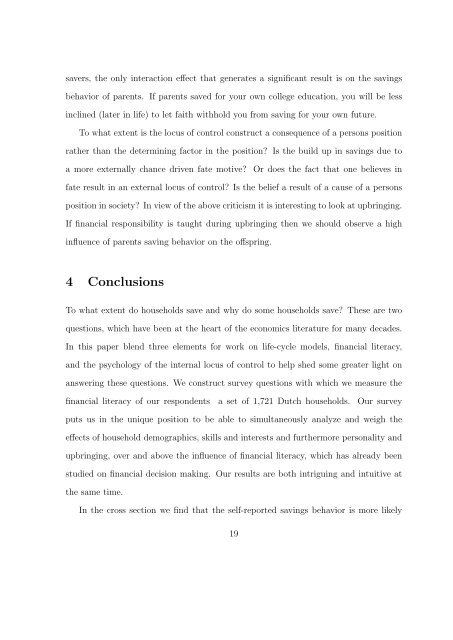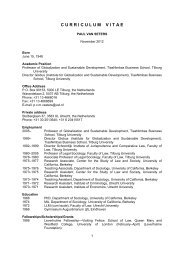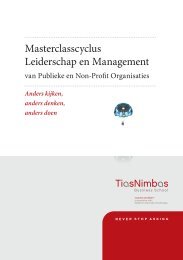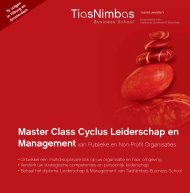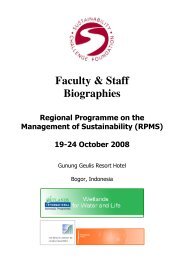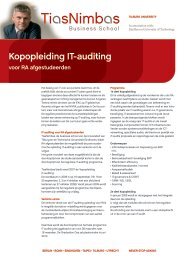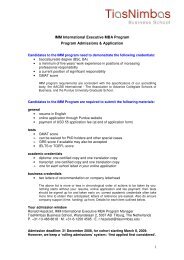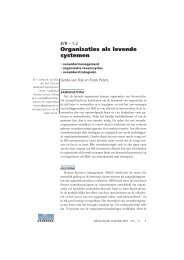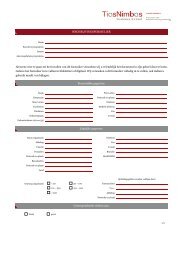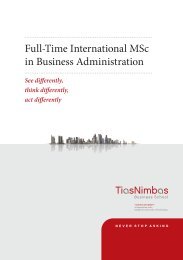Financial Responsibility, Personality Traits and Financial Decision ...
Financial Responsibility, Personality Traits and Financial Decision ...
Financial Responsibility, Personality Traits and Financial Decision ...
You also want an ePaper? Increase the reach of your titles
YUMPU automatically turns print PDFs into web optimized ePapers that Google loves.
savers, the only interaction effect that generates a significant result is on the savings<br />
behavior of parents. If parents saved for your own college education, you will be less<br />
inclined (later in life) to let faith withhold you from saving for your own future.<br />
To what extent is the locus of control construct a consequence of a persons position<br />
rather than the determining factor in the position? Is the build up in savings due to<br />
a more externally chance driven fate motive? Or does the fact that one believes in<br />
fate result in an external locus of control? Is the belief a result of a cause of a persons<br />
position in society? In view of the above criticism it is interesting to look at upbringing.<br />
If financial responsibility is taught during upbringing then we should observe a high<br />
influence of parents saving behavior on the offspring.<br />
4 Conclusions<br />
To what extent do households save <strong>and</strong> why do some households save? These are two<br />
questions, which have been at the heart of the economics literature for many decades.<br />
In this paper blend three elements for work on life-cycle models, financial literacy,<br />
<strong>and</strong> the psychology of the internal locus of control to help shed some greater light on<br />
answering these questions. We construct survey questions with which we measure the<br />
financial literacy of our respondents a set of 1,721 Dutch households. Our survey<br />
puts us in the unique position to be able to simultaneously analyze <strong>and</strong> weigh the<br />
effects of household demographics, skills <strong>and</strong> interests <strong>and</strong> furthermore personality <strong>and</strong><br />
upbringing, over <strong>and</strong> above the influence of financial literacy, which has already been<br />
studied on financial decision making. Our results are both intriguing <strong>and</strong> intuitive at<br />
the same time.<br />
In the cross section we find that the self-reported savings behavior is more likely<br />
19


